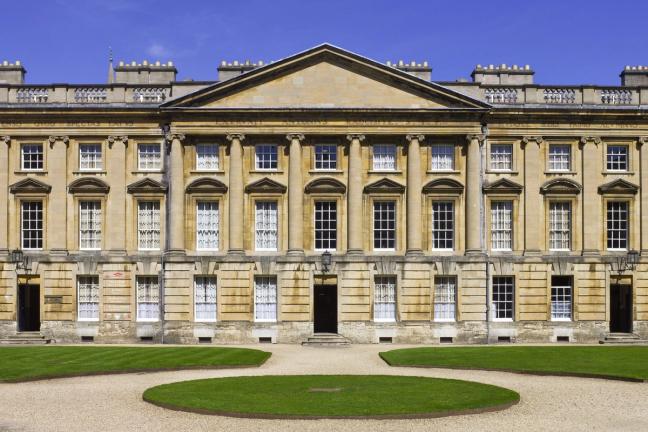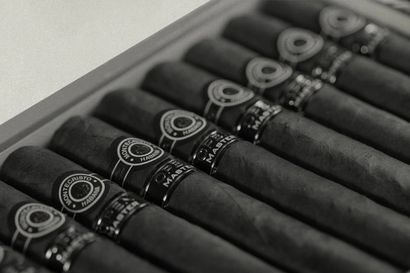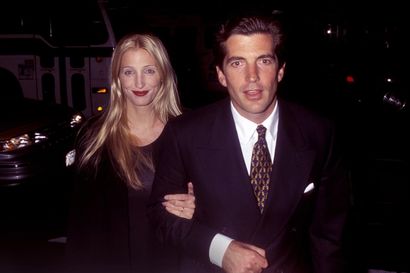Imagine, for one moment, that you are 19 years old and freshly arrived at Oxford. One morning, in the first few weeks of Michaelmas term, a letter appears in your pidge. Your name is written in calligraphy, and the envelope is of hefty stock. The note inside reads as follows:
‘On the 29th of October, at exactly 1:30pm, you will be sat in the Lamb & Flag. You will be wearing a yellow shirt, a yellow suit, a yellow bow tie, yellow socks, and yellow shoes, holding a yellow rose in your lapel’s buttonhole. You will have on your possession a smutty or left-wing publication, a fake/real diamond, and a plush squirrel toy. Besides these you will carry nothing but your keys and passport. Upon arrival, you will order refreshments in the following sequence: a double whisky neat, a Boilermaker, a pint of champagne, a Boilermaker, and a double whisky neat. Your progress will be monitored and having finished we will send instructions. You must commit to memory 10 alumni of the Bullingdon Club. Do not be late. Do not overlook any instruction. Valid we meet on the night, you are not to speak to any member, past or present, of the Bullingdon Club.
Yours expectingly,, The General
What to do? For this is the content of an actual Bullingdon recruitment letter sent not long ago to one 19-year-old first year. Now, to some of us, the answer is obvious. To those with jobs or careers that depend on a degree of probity, who dread an embarrassing internet search history, the answer is ‘do not go anywhere near the Lamb & Flag’. Do not invest in yellow garments, and do not become a member of The Bullingdon. We’ve seen what it did for David Cameron and to an extent Boris Johnson — the never-ending squirming and embarrassment of having to justify why you smashed up a restaurant and burned a £50 note in front of a beggar.


But to your 19 year-old self, the choice isn’t so easy. First off, you’re flattered to have been chosen. The Bullingdon was founded in 1780 and has only had a dozen or so members per year. Already, to have been asked, is a badge of (dis)honour. Of course you want to be in it. You want to prove that you don’t give a damn about the law-abiding sissies of the Junior Common Room, that you live outside the bourgeois concerns of the wider world. You are a rebel, a dandy, a rake. To hell with it. Bah!
Sure enough, the chap who received this letter did join The Bullingdon, and will no doubt reappear as a high court judge or cabinet minister in years to come. But he is one of a dying breed. In these woke days, values like integrity and accountability are more prized among undergraduates than the ability to down 16 quarts of sherry then smash up a local curry house. Being seen to be part of a secretive braying elite doesn’t look as good on the CV as it did in 1987, when that now-infamous photograph of David Cameron was taken on the steps of Peckwater Quad. Indeed, the perception of highly secretive drinking clubs has changed so much that The Bullingdon now lurches between frequent recruitment crises. At one point, in 2016, the club became nearly extinct, having diminished to just two members. But the Buller has a way of bouncing back. In 2006, having shrunk to just four members, the prospects looked bleak, but thanks to an energetic fightback, by 2008 was back up to a healthy 20 members.
"Being seen to be part of a secretive braying elite doesn’t look as good on the CV as it did in 1987"
In fact, it actually entirely depends on who happens to be running it,” explains a onetime Oxford undergraduate of the early noughties. “To succeed, it needs to have a certain appeal beyond just what we all know about it. So in my first year, for example, there were two very charming and persuasive guys who managed to get who they felt to be the right people involved, even though you wouldn’t necessarily have thought they would be classic Bullingdon types.”
There are a few basic requirements to becoming a member, such as the ability to afford £3,500 on a bespoke blue tailcoat with yellow double breasted lapels and waistcoat, made to order at Ede & Ravenscroft on the High Street. You also have to be discreet, as Bullingdon members are sworn to secrecy, sharing a mafia-like code of omertà, which prevents them from ever disclosing what they might do or see on a Buller night out. But most of all, you have to be able to drink.
“In the end, it’s just a drinking club, and there are plenty of those at every university,” says one recent Oxford graduate. Indeed, a recent tally of drinking clubs at Oxford came to 28, with another in 2014 totting the total up to 48. Most prestigious are the university-wide clubs, which can pluck their members from across the 24,000-strong student body: The Bullingdon, The Piers Gaveston, the Stoics and the Assassins, who are tasked with ‘assassinating’ chosen targets in creative ways. One successful ‘assassination’ saw a giant squishy plastic fridge being dropped onto an unsuspecting undergraduate from a window.
Then there are the college-only societies, like the Phoenix at Brasenose, open to only 12 undergraduates at a time, who must wear brown tailcoats and indulge in an orgiastic dinner once a term, as well as host an annual ball. Oriel, the last college to admit women, has more dining societies than any other college, including the Miller and the Myrmidon.

But it’s not just Oxford: Cambridge has some of the worst-behaved students in the country, with clubs like The Caeseareans, the Crabs and The Blaggards. Initiation to The Bulldogs of Churchill College involves “Dog food, red wine, nudity, eggs, lentils and Latin.” Most notorious of all is The Pitt Club, which actually has its own building, where bra-unhooking competitions take place amid its oil portraits and oak-panelled splendour. One recent Cambridge graduate describes the initiation of her ex-boyfriend to the Pitt in 2015 thus: “He had to drink a bottle of vodka at 6am before being unleashed on Cambridge town centre to campaign for UKIP. A woman with a baby in a pushchair spat at his feet and called him scum.”
Clashes between ‘town’ and ‘gown’ are a notable part of the tradition of Oxbridge drinking clubs, but are what get them into the biggest trouble. “University authorities tend not to worry too much about college or university clubs so long as their activities are confined to student bars and rooms,” says one college dean. “It’s when they engage with the public that it becomes a problem.” Senior university figures are all too conscious of the elitist image these secretive societies help to perpetuate, and there are routine attempts to stamp them out.
Last year, the Oxford University Conservative Association banned Bullingdon members from joining. The year before, the club was banned from taking its infamous annual photograph on the steps of Peckwater Quad in Christ Church (pictured above). Indeed, since 1927, The Bullingdon has been banned from holding a dinner within a 15-mile radius from Christ Church, after the episode that year in which 400 windows at the college were smashed. In 2004, an apparently civilised evening at the 15th century White Hart in Fyfield suddenly erupted into an orgy of glass-smashing that led to the police being called and four of the 15 Bullingdon members spending the night in prison.
"Public opinion is worse than ever — but it’s only pushing these activities further into the shadows"
Obviously the public opinion of these things is worse than ever, so I think that’s only pushing the activities further into the shadows,” says the Cambridge graduate. “When I was there, [The Pitt Club] definitely still had a reputation of being very non-woke so I think the old ways are still going strong.” But the demographics of Oxford and Cambridge students are changing, with more undergraduates matriculating from working class or ethnic backgrounds than ever before.
Last summer, to mark 30 years since David Cameron and Boris Johnson posed in their Bullingdon tails, a group of BAME students from Pembroke College staged a re-enactment photograph featuring entirely black and minority ethnic students, both men and women. They wanted to purge the ghost of a photograph “which embodied a world of inherited privilege, the excesses of elitism, and the exclusive structure of social and political power”, according to Prescom, the committee of JCR presidents across the university. ‘An image that does not accurately reflect our view of contemporary British society.’
The more diverse Oxbridge becomes, the more anachronistic clubs like The Bullingdon become. But will it ever go away altogether? “I don’t think so”, says one recent graduate. “People love all the ritual and secrecy of these clubs, even if on a sober day they would admit that they are completely ridiculous.” But then, sober days are becoming more common among students. Members of Generation Z , or Gen Zers, (those born in 1995 or after) drink 20% less than members of Generation X did at their age. Their attitudes to excess and consumption are subtly different and more prudish than previous generations, perhaps because of anxieties about the future, their careers, the economy and the environment.

Not that you would particularly notice among Oxbridge’s sporting fraternities, where drinking clubs are thriving. One popular format is the ‘swap’ (Cambridge) or ‘crew date’ (Oxford), when a male drinking society or rowing team organises drinks and dinner with the female equivalent from another college. Top bants include ‘pennying’, which involves throwing pennies into someone’s drink which, if done successfully, then means they have to down it in one or snog you. Then there’s ‘sconcing’, a process by which one individual ridicules another, for which the penalty is to down a flaggon of beer. The tradition predates the crew date, the term being used as early as 1617 to describe a monetary fine imposed on undergraduates by the university.
But the drinking society that is thriving most in 2019 is every bit as colourful and outrageous as The Bullingdon. Witness the Piers Gaveston Society, assumed by some to date to the time of Edward II’s lover, but in reality dating back only to the 1960s. With its camp icon and inclusion of men and women – so long as they’re up for anything – the Piers Gav is Oxford’s answer to Torture Garden, and every bit as wild. (This, after all, was the party at which David Cameron was alleged to have done something particularly spicy with a pig’s head.)
"They wanted to purge the ghost of a photograph which embodied a world of inherited privilege and elitism"
One recent bash was called ‘The Unleashing of the Primordial Powers’ and had a Space Odyssey dress code. Tickets, at £90 a pop, sold out within days. The carefully invited students, many half-naked and sprayed silver, gamely turned up to a bus-stop where they handed in their phones to ensure secrecy, to be whisked off to a secret rural location for 24 hours of debauchery. A sketch, done from memory by a mole at the party, reveals two ‘sex tents’, a ‘massage tent’ and a ‘drugs stage.’ In 2015, the guests queued up through a maze decorated, at every corner, with severed pigs heads.
The Tab reported how the resident drug dealer would “set up a pop-up table in the middle of a field and lay out baggies like he’s running a make-shift sweet shop.” One witness describes the pseudo-festival as “loads of rich kids doing whatever the fuck they want in a field,” while another noted that it was “mainly people who didn’t have much fun at school desperately trying to make up for lost time.” Recent organisers Zsa Zsa Gawhore and Marilyn Monhoe issued three simple instructions to attendees: ‘More extravagance, less clothing, no being a dick’. Should the Bullingdon ever really find itself on the brink of extinction, they could do worse than to take that as their new credo.
Looking for something a little more civilised? Here are the best winter first date spots in London…

Become a Gentleman’s Journal Member?
Like the Gentleman’s Journal? Why not join the Clubhouse, a special kind of private club where members receive offers and experiences from hand-picked, premium brands. You will also receive invites to exclusive events, the quarterly print magazine delivered directly to your door and your own membership card.


